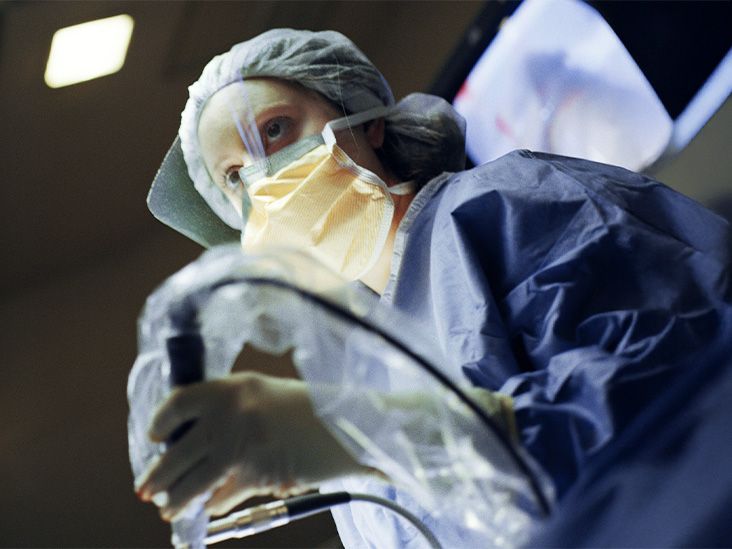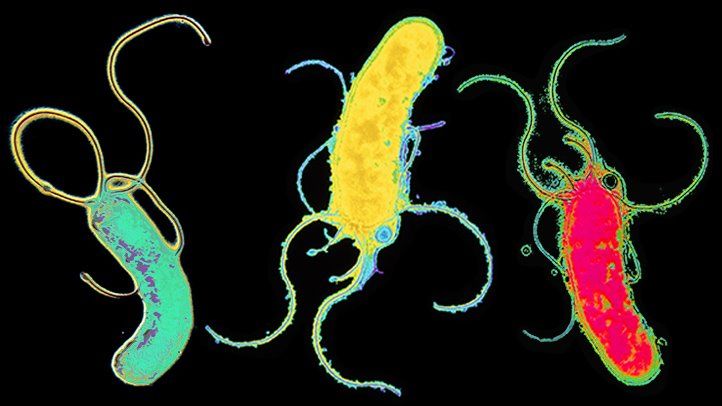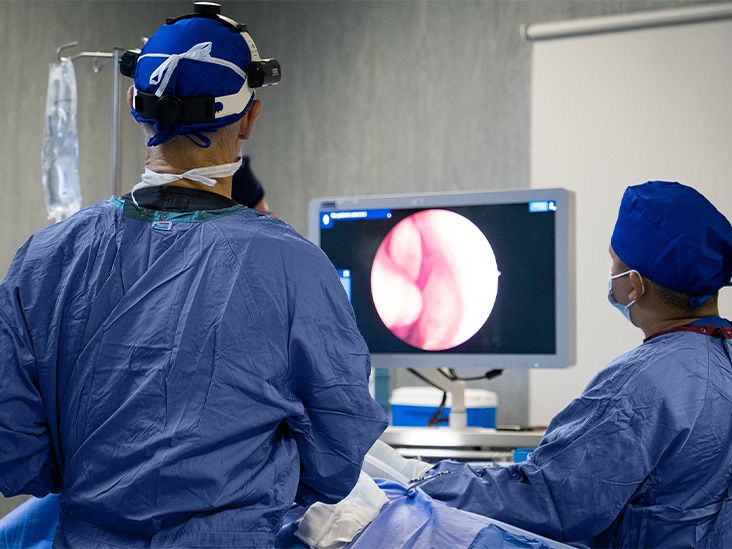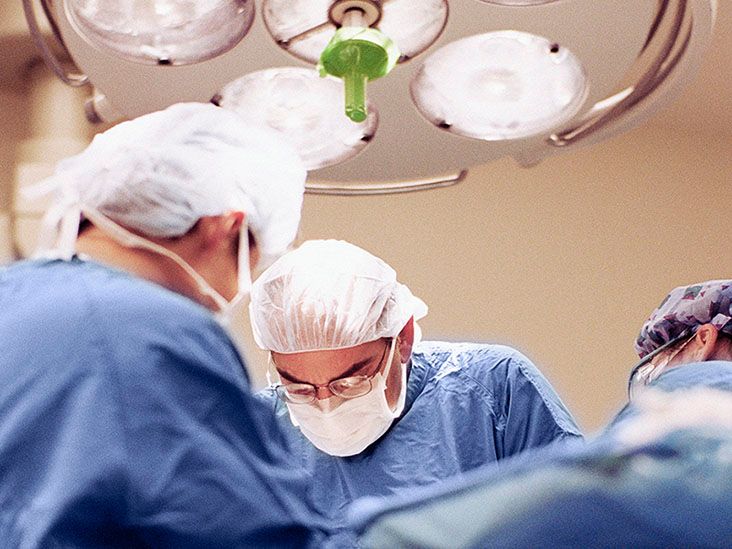Have you been lying awake at night, wondering what gastrectomy surgery really means for your life? Maybe your doctor mentioned it during a consultation, or perhaps you're researching it for a loved one. Whatever the reason, I'm here to walk you through what gastrectomy actually involves, what to expect during recovery, and how you can prepare yourself both physically and emotionally.
Let's be honest when someone mentions removing part or all of your stomach, it can feel overwhelming. But here's the thing: gastrectomy isn't just about taking something away. It's often about giving something back relief from pain, stopping dangerous bleeding, or even saving your life. So while it's natural to feel anxious, remember that you're taking a step toward better health.
What Is Gastrectomy?
Gastrectomy surgery is exactly what it sounds like the removal of part or all of your stomach. Think of it as your surgeon carefully removing a damaged section, much like trimming away a rotten part of an apple to save the rest. Depending on your condition, you might need a partial gastrectomy (removing just a portion) or a total gastrectomy (removing the entire stomach).
During a partial gastrectomy, surgeons typically remove the lower part of your stomach, known as a distal gastrectomy. In a total gastrectomy, your esophagus connects directly to your small intestine, creating a new pathway for food. It's like rerouting a highway different, but still functional.
But why would someone need this surgery? The most common reason is stomach cancer, which affects thousands of people each year. Other conditions that might lead to gastrectomy include severe ulcers that won't heal, uncontrollable bleeding, or rare conditions like Zollinger-Ellison syndrome. Sometimes, pre-cancerous changes in the stomach lining, such as Barrett's esophagus, also require surgical intervention.
Types of Stomach Removal Surgery
Not all gastrectomy procedures are the same, and understanding the differences can help you feel more prepared. Let's break down the main types:
| Type | What's Removed | Connection After Surgery | Recovery Considerations |
|---|---|---|---|
| Partial Gastrectomy | Lower portion of stomach | Remaining stomach connects to small intestine | Generally easier adjustment to eating |
| Total Gastrectomy | Entire stomach | Esophagus connects directly to small intestine | More significant lifestyle changes needed |
Besides the extent of removal, gastrectomy can also vary in how it's performed. Open surgery involves a large incision, while laparoscopic gastrectomy uses several small incisions and specialized instruments. Robotic-assisted surgery is becoming more common, offering even greater precision. The minimally invasive approaches generally mean less pain and faster recovery times, which is pretty amazing when you think about it.
I remember talking with Dr. Sarah Chen, a leading gastrointestinal surgeon, who mentioned that minimally invasive techniques have improved dramatically over the past decade. "Patients who might have spent weeks recovering from open surgery are now going home within days," she told me. That kind of progress is genuinely exciting.
Potential Complications to Understand
Like any major surgery, gastrectomy comes with potential risks, and it's important to understand these without letting fear take over. In the short term, you might experience bleeding, infection, or blood clots concerns that your medical team monitors closely.
Longer-term complications can include dumping syndrome, where food moves too quickly from your esophagus to your small intestine. This can cause nausea, cramping, and sometimes dizziness after eating. Nutritional deficiencies are also common since your stomach plays a crucial role in absorbing certain vitamins and minerals.
Here's something that might surprise you: many people discover that managing these challenges becomes second nature with time. Maria, a gastrectomy patient I spoke with, shared that while the first few months were challenging, she eventually found a rhythm that worked for her. "I had to learn a new language for eating," she explained, "but it became my normal."
Vitamin deficiencies, particularly B12, iron, and calcium, are common after gastrectomy. Your doctor will likely recommend lifelong supplements, and regular blood tests will help monitor your levels. While this might seem overwhelming initially, think of it as routine maintenance like oil changes for your car.
Your Recovery Journey
Recovery from gastrectomy surgery is different for everyone, but there are some general timelines that might help you set realistic expectations. Most people spend 5 to 10 days in the hospital after surgery, though this can vary based on the type of procedure and your overall health.
Getting back to your normal routine typically takes weeks to months. Your surgeon might clear you for light activities after a few weeks, but full recovery can take up to a year. I know that sounds like a long time, but think of it as rebuilding your body is literally creating new pathways and adjusting to a different way of processing food.
The dietary changes after gastrectomy are probably the biggest adjustment. You'll need to eat smaller, more frequent meals think 5 or 6 small meals instead of 3 large ones. Foods high in sugar might cause uncomfortable symptoms, while protein-rich foods become incredibly important for healing and maintaining energy.
Nutritionist Jennifer Martinez, who specializes in post-surgical care, recommends starting with very small portions and gradually increasing as tolerated. "I always tell my patients that their stomach capacity is now more like a shot glass," she says. "It's about quality, not quantity."
Making the Right Decision
Deciding whether gastrectomy is right for you is deeply personal and shouldn't be rushed. When you're talking with your doctor, don't hesitate to ask the tough questions. Are you a good candidate for minimally invasive techniques? What's the stage of your condition if it's cancer-related? How will this surgery impact your daily life?
It's also worth considering a second opinion, especially for major surgeries like gastrectomy. Different surgeons might have different approaches, and getting multiple perspectives can give you confidence in your decision. Remember, this is your body and your life you have every right to feel completely informed and comfortable with your choice.
The benefits of gastrectomy can be life-changing. For cancer patients, it can be curative. For those with severe ulcers or bleeding, it can stop dangerous symptoms and significantly improve quality of life. Studies show that patients with early-stage stomach cancer who undergo gastrectomy have five-year survival rates of over 80% when caught early.
Of course, there are trade-offs to consider. Permanent changes in digestion mean adapting to a new way of eating and potentially taking supplements for life. But many patients find that these adjustments are a small price to pay for relief from debilitating symptoms or improved survival odds.
Life After Gastrectomy Surgery
Here's the part I want you to really hear: gastrectomy surgery changes your relationship with food, but it doesn't have to change your relationship with life. In fact, many people find that once they've recovered, they feel more energetic and comfortable than they have in years.
You might need to be more mindful about what you eat, but mindful eating can actually be a positive thing. Instead of rushing through meals, you'll savor smaller portions and pay attention to how different foods make you feel. Some people discover they actually enjoy cooking more because they're creating meals that truly nourish them.
Support groups and online communities can be invaluable resources. Connecting with others who've walked this path can provide both practical advice and emotional support. You're not alone in this journey, and there's wisdom in learning from those who've been where you are.
Remember that your medical team is there to support you every step of the way. Don't be afraid to call with questions or concerns they've seen this journey many times and want to help you succeed. Your dietitian, surgeon, and primary care doctor all play important roles in your recovery.
Moving Forward with Confidence
Gastrectomy surgery is major, and acknowledging that is important. It's okay to feel nervous, excited, or even scared. These feelings are natural responses to significant change. What matters is that you're taking steps toward better health, and that's something to be proud of.
Think about all the people who've successfully navigated this surgery and come out stronger on the other side. They've learned new routines, discovered different foods they love, and found ways to thrive with their changed digestive system. You have that same potential within you.
Your journey with gastrectomy surgery is unique to you, but you're not facing it alone. Whether you're preparing for surgery, recovering from it, or supporting someone who is, remember that each small step forward is progress. Every meal that goes well, every day with a little more energy, every moment of comfort these are victories worth celebrating.
If you're considering gastrectomy or have questions about the process, don't hesitate to reach out to your healthcare team. They're there to help you make informed decisions about your health. And if you're further along in your journey, take a moment to appreciate how far you've come. Your strength and resilience are remarkable.
Whatever stage you're at, remember this: you're not just surviving gastrectomy surgery you're learning to thrive beyond it.
FAQs
What is the difference between a partial and a total gastrectomy?
A partial gastrectomy removes only the lower portion of the stomach, allowing the remaining part to connect to the small intestine. A total gastrectomy removes the entire stomach, connecting the esophagus directly to the small intestine.
How long is the typical hospital stay after gastrectomy surgery?
Most patients stay in the hospital for 5–10 days after surgery, though the exact duration depends on the type of procedure, any complications, and overall health.
What dietary changes are needed after gastrectomy?
After surgery you’ll need to eat small, frequent meals (5–6 per day), focus on protein-rich foods, avoid high‑sugar items that can trigger dumping syndrome, and take lifelong vitamin B12, iron, and calcium supplements.
What are common complications such as dumping syndrome?
Dumping syndrome occurs when food moves too quickly into the small intestine, causing nausea, cramping, and dizziness. Other possible issues include infections, bleeding, blood clots, and long‑term nutritional deficiencies.
Can minimally invasive techniques be used for gastrectomy?
Yes. Laparoscopic and robotic‑assisted gastrectomies are increasingly common, offering smaller incisions, less pain, and faster recovery compared with traditional open surgery.
Disclaimer: This article is for informational purposes only and does not constitute medical advice. Always consult with a healthcare professional before starting any new treatment regimen.
Related Coverage
Is there a real connection between kimchi stomach cancer risk? Get the facts on fermented food safety and what you can do to stay healthy....
Get insights on how immunotherapy for stomach cancer works, who benefits most, side effects, and key questions for your oncologist....
Get insight into what doctors see during a stomach cancer endoscopy, why the images matter, and how detection can save lives....
Stomach cancer quizzes boost public knowledge on risk factors, symptoms, prevention and facts. Interactive quizzes empower early detection and care seeking....
Simple steps—maintain weight, eat more veggies, quit smoking, limit alcohol, test for H. pylori to prevent stomach cancer....
A stomach cancer diagnosis includes upper endoscopy with biopsy, staging scans, and treatment planning to guide you forward....
Compare stomach cancer vs ulcer symptoms, causes, tests and treatments, and spot red‑flag signs that require urgent attention....
Learn how age, H. pylori, diet, smoking, and genetics affect stomach cancer risk and discover steps to lower your chances....
Gastrectomy surgery reshapes digestion; learn types, recovery timeline, diet tips, and supplements for a healthier post‑op life....
Get essential info on esophageal and stomach cancer symptoms, risk factors, diagnosis, and treatment options to help you stay informed and prepared....









